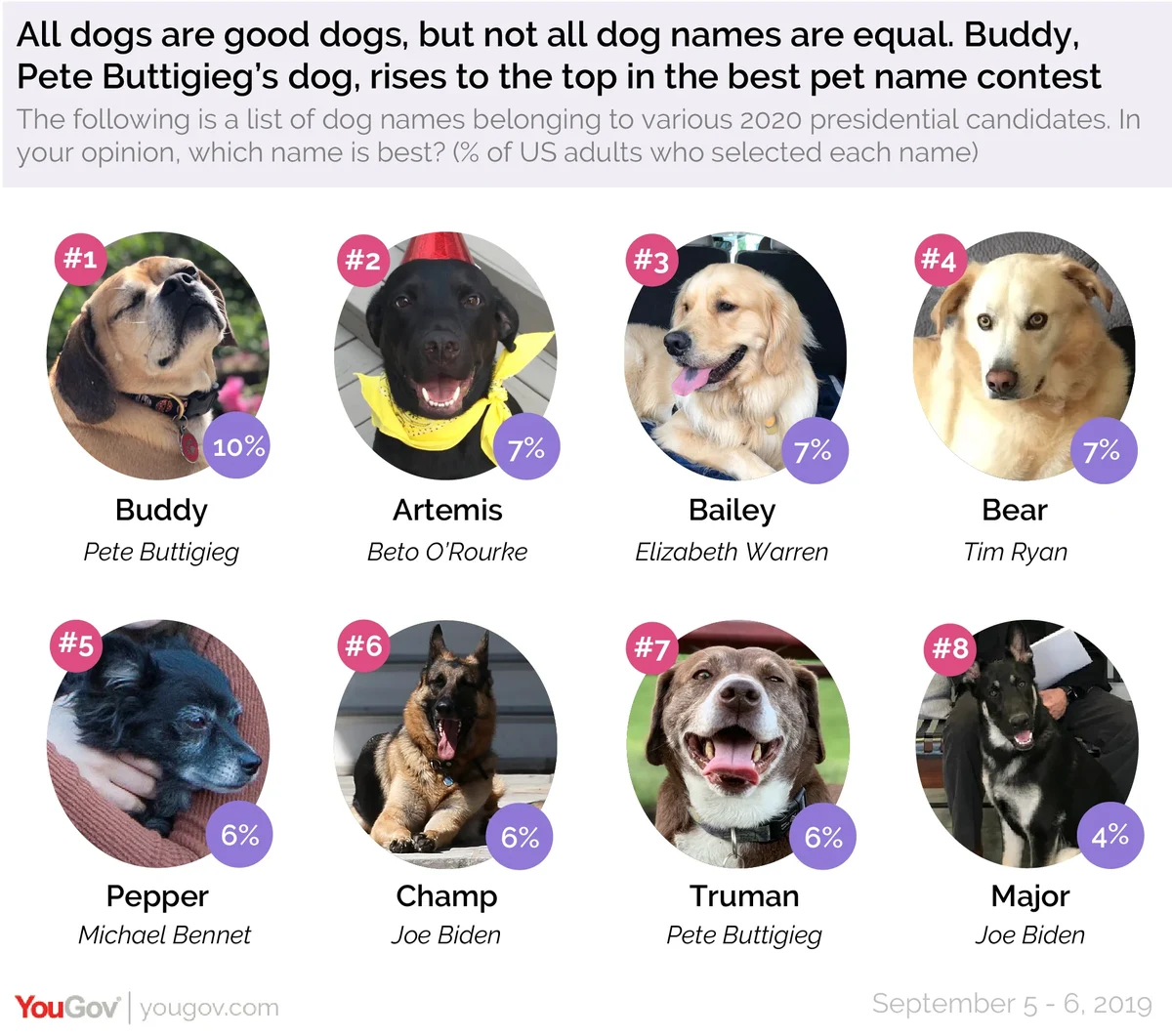The dog days of summer campaigning are waning, which means it’s time to update the YouGov presidential hopefuls dog tracker. Since the last time we asked in May, a few upsets have emerged in America’s vote for which presidential candidate’s pup has the best name.
The Democratic field now boasts 20 candidates with 11 declared canine companions among them. YouGov recognizes that all dogs are good dogs, but Americans have preferences on which 2020 pup has the best name. In the latest YouGov survey of more than 1,200 US adults, Mayor Pete Buttigieg’s puggle, Buddy, won 10 percent of the overall vote and knocked Senator Elizabeth Warren’s golden retriever, Bailey, from the top spot.

During the first presidential pooch survey in May, YouGov data showed Buddy in fourth place with 7 percent of the vote. Now, one in 10 Americans say that Buttigieg’s one-eyed puggle shelter dog has the best name.
The competition is close, however. Beto O’Rourke’s dog, Artemis, moved from third place to second place, keeping roughly the same percentage of the vote. Warren’s four-legged friend, Bailey, moved from first place (10%) to third place (7%). Tim Ryan’s dog, Bear, pulled 7 percent of the vote to round out the top four aspiring presidential pups.
One notable upset: Former Vice President Joe Biden’s eldest German Shepard, Champ, dropped from second place to sixth place, but his favorability remains competitive. The only pups who earned 3 percent of the vote or less were John Delaney’s family dog, Mimi; Joe Sestak’s dog, Belle; and Ryan’s other dog in our poll, Buckeye.
Democrats were more likely than Americans overall to select Bailey (10%) and Artemis (9%) as their favorite dog names, and Republicans’ top two choices were Buddy (11%) and Champ (9%). Independents were also partial to Buddy (10%) and Bear (8%). It's early in the 2020 race, and many dog-name voters remained undecided with 15 percent marking "don't know" and 24 percent not liking any of the dog names selected by candidates.
Methodology: Total unweighted sample size was 1,207 US adults. The figures have been weighted and are representative of all US adults (ages 18+). Interviews were conducted online between September 5 - 6, 2019. For the purposes of the survey, panelists were not told which dog belongs to which presidential candidate in order to avoid candidate bias. This poll was intended for entertainment purposes, and it is not designed to measure opinions about the 2020 presidential race.
Disagree with the top 2020 dogs? Cast your own vote. Sign up to become a panelist here and see the full survey results.
Related: Dogs in the White House: Which 2020 dog names are winning America’s vote?
Image: Getty












